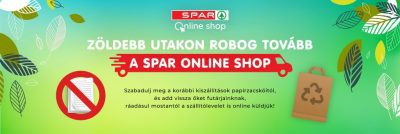Customers of the Hungarian store chain can help reduce food wastage: SPAR teamed up with the online platform Munch to reduce food waste and as a result of their partnership, customers will be able to buy quality products at a reduced price. The food saving service will be trialled from the 2nd of November in the 11th district of Budapest, as well as in Szeged and in Hódmezővásárhely.
Packaged and unpackaged breads, bakery products, savoury and sweet treats, vegetables, fruits, nuts, juices, dairy products, pastas, packaged salamis, cold cuts, fresh eggs and other, non-refrigarated products could end up in the SPAR Munch surprise bags at 33% percent of their original price. The store chain launched the trials of the service on the 2nd of November 2022 in the eleven shops of the 11th district of Budapest, nine stores in Szeged, and two in Hódmezővásárhely meaning that 20 SPAR supermarkets and two INTERSPAR hypermarkets will participate in the test run. They are planning on involving more stores following the trials.

Munch is a Hungarian startup which provides a platform for grocery store chains and restaurants to sell their daily leftover, good-quality products at a heavily discounted price. The aim is to reduce food waste and promote sustainable and responsible food retail, hospitality and consumption.
It is very simple to use: you just need to book the bag you picked via the freely available mobile app or through the website, pay for it online, and then collect it within the pick-up window in the designated store. There are four different types of bags you can save in SPAR’s stores. They mostly consist of bakery products, fruits and vegetables, and refrigerated products with up to a 66% discount. It means that shoppers can buy a bag worth of approximately 3,000 forints for a thousand forints and bag worth 1,500 forints for 500 forints.
 “Everyone benefits from this service which makes it a real win-win project. We cut the food waste of the stores, customers get access to lots of products at 33% of the original price, and we significantly reduce our impact on the environment by not throwing away these food products. Unfortunately, wasting food is a global phenomenon – one third of all of the food produced around the globe gets disposed or ends up as waste. This means that in Europe alone almost 90 million tonnes of food goes to waste each year. Starting now, SPAR’s customers can also start saving food in an efficient way with the help of Munch through which they can discover new products and become part of a concious-thinking and environmentally-protective community,” said Gabriella Heiszler, chair and managing director of SPAR Hungary.
“Everyone benefits from this service which makes it a real win-win project. We cut the food waste of the stores, customers get access to lots of products at 33% of the original price, and we significantly reduce our impact on the environment by not throwing away these food products. Unfortunately, wasting food is a global phenomenon – one third of all of the food produced around the globe gets disposed or ends up as waste. This means that in Europe alone almost 90 million tonnes of food goes to waste each year. Starting now, SPAR’s customers can also start saving food in an efficient way with the help of Munch through which they can discover new products and become part of a concious-thinking and environmentally-protective community,” said Gabriella Heiszler, chair and managing director of SPAR Hungary.
“SPAR joining this community of food savers presents an easy and local solution and can provide a positive example for others to follow. In Hungary there are more than 600 independent and chain stores throughout Hungary who joined our food saving platform in more than 35 municipalities. SPAR’s involvement is proof that Munch, which is becoming more and more popular with young people, and even families and the elderly during the current economic difficulties, provides even the biggest food retailers with an easy and real solution to reduce their food waste. We are aware of a member who managed to save more than 500 units of food in one year and saved almost one million forints with the help of Munch,” emphasized Kirill Perepelica, co-funder and commercial director of Munch.
A special element of the Munch bags is the surprise which makes the orders even more exciting. Depending on what is waiting to be saved, on a given day a surprise will end up in the bag which means that customers might discover new SPAR products, new flavours, or special ingredients.

Munch is available through the following links:
Website: https://munch.hu/
Google Play: https://play.google.com/store/apps/details?id=com.munch.munchapp
App Store: https://apps.apple.com/hu/app/munch-b-eat-food-waste/id1528038390
The SPAR-Munch trial has launched on 2 November 2022 in the following SPAR and INTERSPAR stores:
Budapest, District 11:
SPAR supermarket – 1112 Budapest, Péterhegyi lejtő 36.
SPAR supermarket – 1115 Budapest, Etele út 58-60.
SPAR supermarket – 1117 Budapest, Irinyi József utca 34.
SPAR supermarket – 1119 Budapest, Tétényi út 31.
SPAR szupermarket – 1112 Budapest XI., Balatoni út (lot nr. 000853/15) (Kérő u. 1.)
SPAR supermarket – 1114 Budapest XI., Bartók Béla út 51.
SPAR supermarket – 1117 Budapest, Dombóvári út 27.
SPAR supermarket – 1119 Budapest, Fehérvári út 45.
SPAR supermarket – 1119 Budapest, Hadak útja 1.
SPAR supermarket – 1118 Budapest, Rétköz utca 7.
INTERSPAR hypermarket – 1117 Budapest XI., Október 23-a utca 8-10.
Szeged:
SPAR supermarket – 6726 Szeged, Csanádi utca 7
SPAR supermarket – 6724 Szeged, Sárosi út 4.
SPAR supermarket – 6725 Szeged, Szentháromság utca 68.
SPAR supermarket – 6723 Szeged, Tápai utca 50.
SPAR supermarket – 6723 Szeged, Csillag tér 6.
SPAR supermarket – 6720 Szeged, Széchenyi tér 15.
SPAR supermarket – 6724 Szeged, Mars tér 1-3.
SPAR supermarket – 6723 Szeged, Szilléri sugárút 26-30.
SPAR supermarket – 6724 Szeged, Londoni körút 3.
Hódmezővásárhely:
SPAR supermarket – 6800 Hódmezővásárhely, Andrássy út 8.
INTERSPAR hypermarket – 6800 Hódmezővásárhely, Kaszap utca 20.
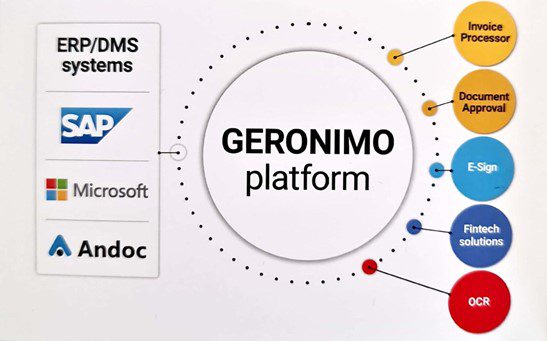



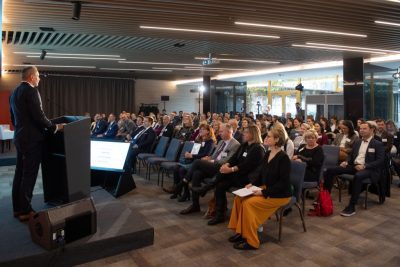
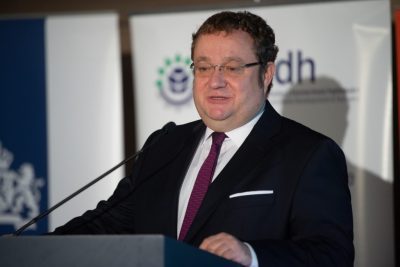
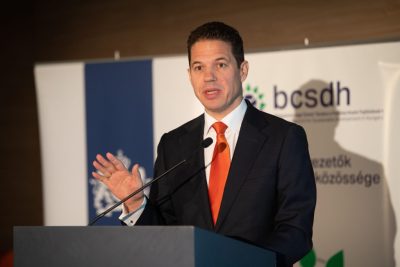




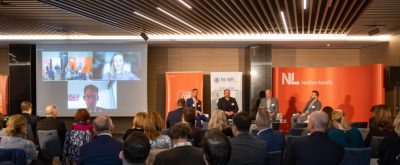


 “Everyone benefits from this service which makes it a real win-win project. We cut the food waste of the stores, customers get access to lots of products at 33% of the original price, and we significantly reduce our impact on the environment by not throwing away these food products. Unfortunately, wasting food is a global phenomenon – one third of all of the food produced around the globe gets disposed or ends up as waste. This means that in Europe alone almost 90 million tonnes of food goes to waste each year. Starting now, SPAR’s customers can also start saving food in an efficient way with the help of Munch through which they can discover new products and become part of a concious-thinking and environmentally-protective community,” said Gabriella Heiszler, chair and managing director of SPAR Hungary.
“Everyone benefits from this service which makes it a real win-win project. We cut the food waste of the stores, customers get access to lots of products at 33% of the original price, and we significantly reduce our impact on the environment by not throwing away these food products. Unfortunately, wasting food is a global phenomenon – one third of all of the food produced around the globe gets disposed or ends up as waste. This means that in Europe alone almost 90 million tonnes of food goes to waste each year. Starting now, SPAR’s customers can also start saving food in an efficient way with the help of Munch through which they can discover new products and become part of a concious-thinking and environmentally-protective community,” said Gabriella Heiszler, chair and managing director of SPAR Hungary.
